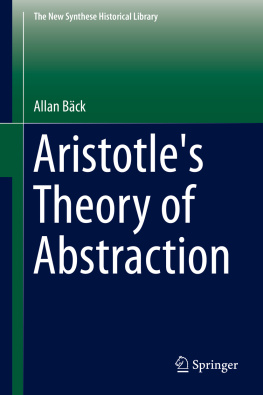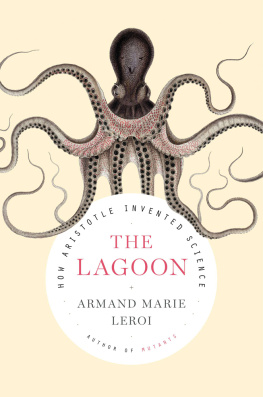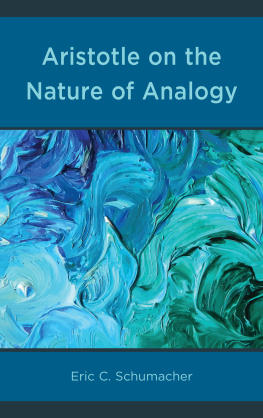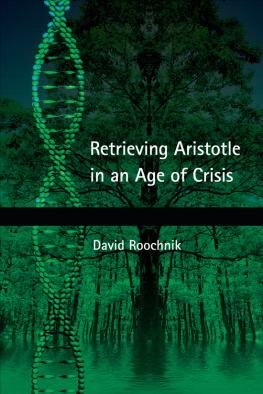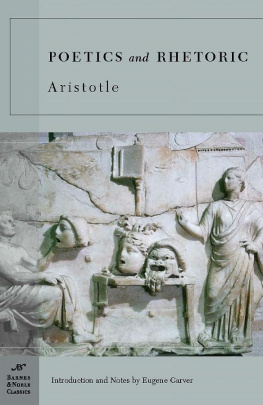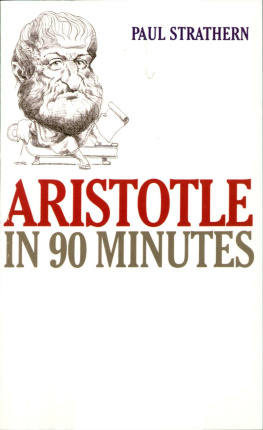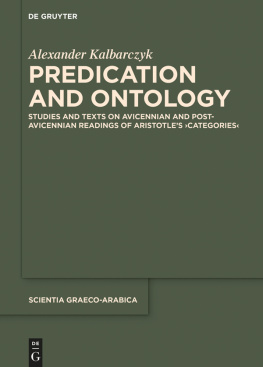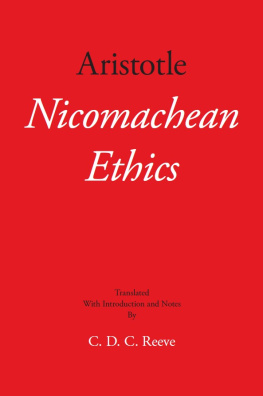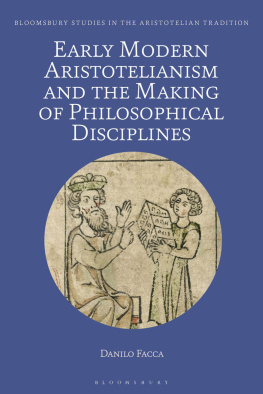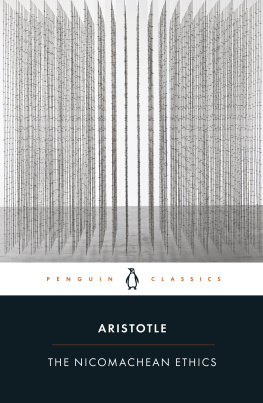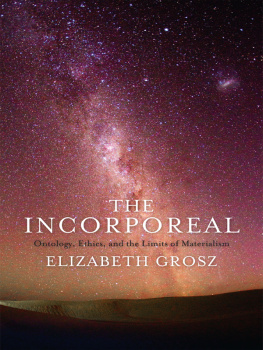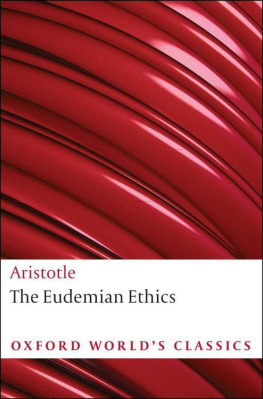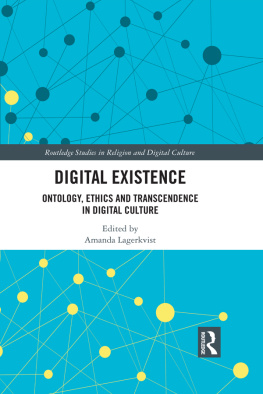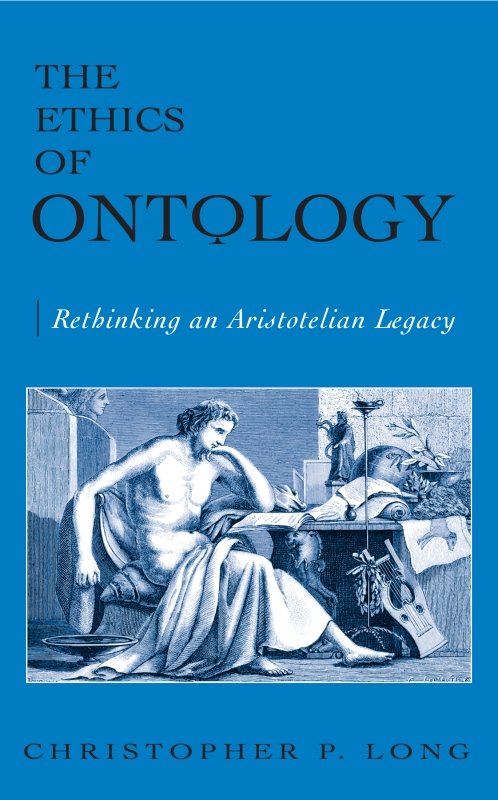
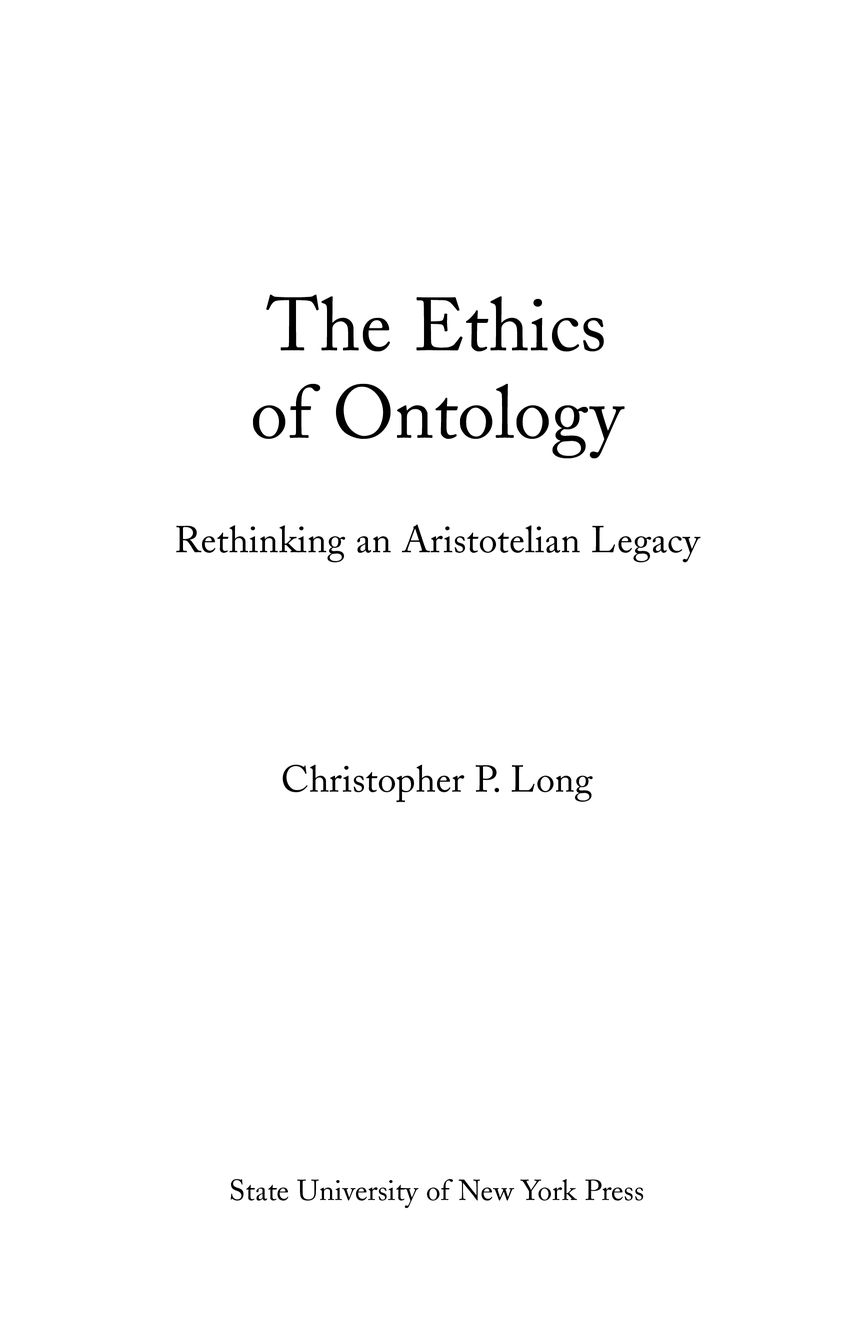
Table of Contents
SUNY series in Ancient Greek Philosophy
Anthony Preus, editor
With friendship, respect, and, above all, love:
For Valerie,
in whom grace and will converge.
Refuse the life of anarchy;
Refuse the life devoted to
One master.
The in-between has the power
By Gods grant always, though
His ordinances vary.
Aeschylus, Eumenides
The concentration and fusion into the
whole being can never happen through me
nor can it happen without me. I become in
relation to the Thou, becoming I, I say Thou.
All actual life is encounter.
Martin Buber, Ich und Du
Preface
This book calls into question the privilege that ontology has historically enjoyed over ethics. Ontology, the search for the ultimate principles of reality, has traditionally been said to precede ethics, which concerns itself with the contingency of human character and action. This tradition begins with Aristotle, whose attempt to establish a rigorous science of being seems to sequester the contingent concerns of finite existence from the search for the necessary principles of being. Yet this Aristotelian legacy fails to recognize the contingent nature of all ontological investigation and so unwittingly covers over its own collusion in the alleged discovery of the ultimate principles of order. This obfuscation lends an aura of objectivity to these principles that serves to legitimate the manner in which they function. Although this seems harmless and abstract, such principles have historically animated the various structures of oppression operating at the very heart of Western civilization.
The codification of such structures of oppression may be traced to the Physics and Metaphysics of Aristotle, and specifically to the tendency to seek ultimate order in the domination of form over matter. The tremendous power of the Aristotelian distinction between form and matter lies in its universal applicability: anything can be thematized as a composite of these two principles. Testimony to its enormous success lies in the way it operates unnoticed: we no longer see the distinction as anything other than the description of the objective structure of reality. Aristotles conception of ousia, traditionally rendered substance, but more literally, simply being, functions both in Aristotle and throughout the history of Western thinking as a parameter according to which the totality of beings is quite literally set in order. then this is of no minor consequence, for it informs the very manner in which we set our world into order.
Yet there is more to the legacy of ousia than the history of domination, for ousia points already in Aristotle to the perplexing presence of the concrete individual, itself irreducible to the hegemony of form. Thus if we speak Aristotle, as we surely do, it is the dialect of domination and not the more nuanced dialect, discernable already in Aristotle, of doing justice to the phenomena. To recover this other dialect and so to relearn the very language through which we determine not merely the meaning of being, but more significantly, the world of beings is the main purpose here.
Recovering this other dialect in Aristotle involves stepping back behind the long and codified tradition of Aristotle scholarship. I have sought to do this in three ways. First, in order to destabilize our sense of familiarity with basic concepts that no longer strike us as thought provoking, I have left Greek terms largely untranslated. For ousia is not simply substance, nor praxis merely action; energeia is more than actuality, and to ti en einai is surely more complicated than essence. These terms, and others, most notably tode ti, which shows itself here to be far more than merely that which is particular, are meant to stand out rather awkwardly, to cause the reader to pause and perhaps even to reconsider the calcified meaning that they have taken on over the centuries.
Second, the methodological approach of this book is unconventional: although it follows the paths of Aristotles thinking, it does not aim to reconstruct the system of Aristotelian thought. The detailed investigation into the various paths of Aristotles thinking that constitutes the greater part of the book is necessitated by the recognition that these paths themselves suggest a way of thinking about principles that is eclipsed by traditional interpretations. The traditional approach, concerned as it is to reconstruct the system of Aristotles thought, naively embraces the dialect of domination. In so doing, it remains loyal to Aristotles own deep concern to establish order and stability in a dynamic world. Yet this reconstructive approach tends to obscure another, more open dimension of Aristotelian thinking: his intense loyalty to that which appears and his deep willingness to modify and revise theoretical positions when they fail to do justice to concrete experience. Rather than seeking to secure the ultimate order of the Aristotelian system, this book is, quite literally, peripatetic, for it attempts to walk with Aristotle as he thinks his way into the complexities of finite being.
The third way this book seeks to step back behind the orthodox Aristotle is by calling into question the presumed destination of these various paths of thinking. At least since the ancient editor, Andronicus, set the books of the Metaphysics in order, it has been assumed that the ultimate culmination of the work is to be found in Book XII with its account of God, pure thought thinking itself, who serves as the ultimate principle of order. Yet however enticing this theoretical abstraction may be, however intoxicating may be the language Aristotle uses to describe it, it is by no means clear that all of the paths of Aristotelian thinking lead to God. Rather, this book suggests that the various paths of Aristotles thinking concerning finite ousia lead in a different direction, one that is less concerned with establishing the ultimate principle of order than it is with doing justice to the phenomenon of the finite individual itself. To anticipate the itinerary of this book, the path of Aristotles ontological engagement with finite being leads from the Categories through the Physics to the middle books of the Metaphysics, where a dynamic conception of ousia is developed. Insofar as this dynamic ontology thinks ousia as finite and contingent, it disrupts the attempt to establish ontology as a rigorous science and points to the Nicomachean Ethics, where Aristotle introduces an ethical form of knowledge, phronsis, that is capable of doing justice to the finite, contingent individual. To put the point boldly, the Metaphysics culminates in the Nicomachean Ethics. Ontology is ethical.
In following this path of Aristotles thinking, it becomes increasingly clear that the ontological investigation into the meaning of finite being cannot remain merely theoretical but must descend into the practical realm, for the very appearance of the finite composite is itself never merely abstract and theoretical but always already concrete and personal. By tracing the trajectory of Aristotles thinking concerning finite ousia, we come to recognize that being does not appear to us in isolation, that we ourselves collude in the construction of the individual, and, finally, that we must become vigilantly responsible for and constantly cognizant of this collusion. This ability to respond to the otherness of the Othercomplex, ambiguous, but necessaryis the ethics of ontology.
Next page



